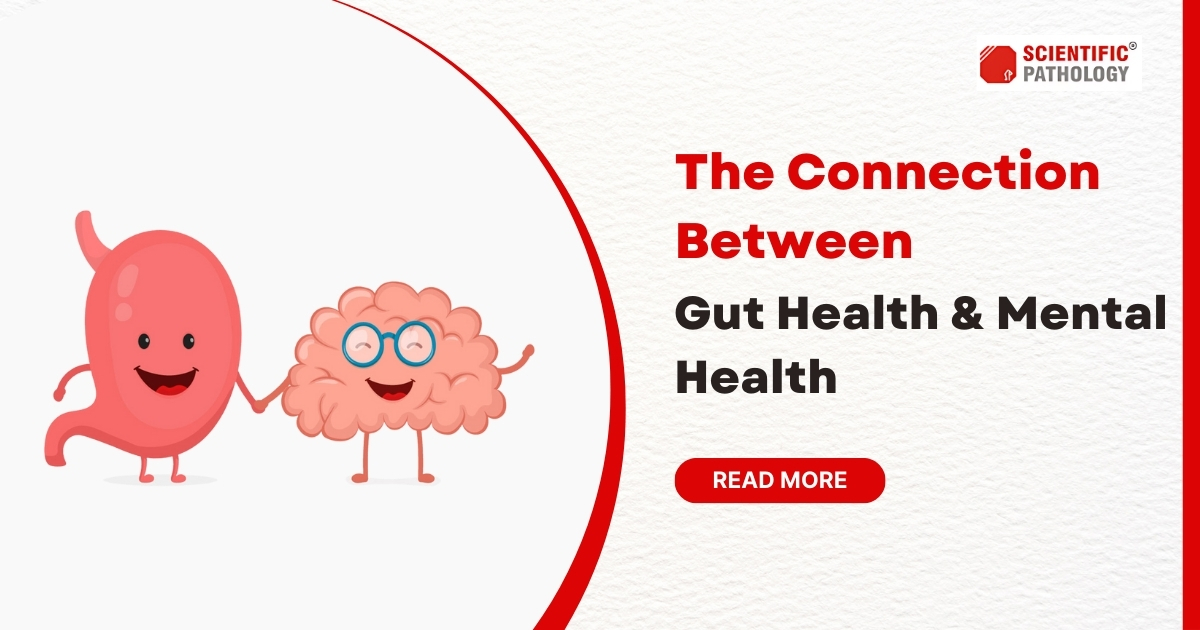The Connection Between Gut Health & Mental Health
The Connection Between Gut Health & Mental Health
In recent years, scientific research has illuminated the fascinating and intricate connection between gut health and mental health. Often called the "mind-gut connection," this link highlights how deeply our digestive health influences our mood, cognitive abilities, and emotional balance.
Understanding the Gut Microbiome
The gut microbiome is a vast and complex community of trillions of microorganisms—including bacteria, fungi, viruses, and other microscopic life forms—residing within our digestive tract. This ecosystem is essential for maintaining optimal health, aiding in digestion, nutrient absorption, and immune support. At *Scientific Pathology*, we emphasize the importance of a balanced and diverse gut microbiome to not only support physical health but also promote mental wellness.
Gut-Brain Axis: The Communication Superhighway
The gut-brain axis serves as a bidirectional communication network that links the gut and the brain, facilitating a constant exchange of information between the central nervous system (CNS) and gut microbiota. Messages flow from the gut to the brain through neural, endocrine, and immune pathways, and vice versa. This intricate system underscores how the health of our gut can influence our thoughts and emotions—and how our mental state, in turn, affects our gut.
Gut Health and Mood Disorders
Recent studies have shown that disruptions in gut health can significantly influence mood and emotional well-being. Conditions such as anxiety, depression, and neurodevelopmental disorders like autism have been linked to gut microbiome imbalances. Research suggests that alterations in specific gut bacteria may increase inflammation and disrupt neurotransmitter production, both of which play a role in mood regulation. *Scientific Pathology* stays at the forefront of research to better understand these connections and to help individuals achieve a balanced microbiome.
The Gut Microbiome and Cognitive Function
Beyond mood, the gut microbiome also influences cognitive function and brain health. Imbalances in gut bacteria have been linked to impairments in memory, learning, and attention, while a healthy gut can support optimal cognitive function. Neurotransmitters like serotonin and dopamine, which are crucial for mental clarity and focus, are influenced by gut health. Our team at *Scientific Pathology* is committed to examining these complex interactions to uncover practical ways to boost cognitive well-being.
Stress, Gut Health, and Mental Health
Chronic stress disrupts the delicate balance of the gut microbiome, potentially exacerbating mental health challenges. Stress hormones can alter the gut's composition, leading to increased inflammation and a heightened susceptibility to mood disorders. However, a resilient, healthy gut microbiome can counteract some of the effects of stress, promoting emotional resilience and a balanced stress response. By incorporating gut health strategies, *Scientific Pathology* supports clients in developing holistic approaches to stress management.
Nurturing a Healthy Gut Microbiome
Taking proactive steps to maintain a healthy gut microbiome can yield significant mental health benefits. Strategies include consuming a diverse, fiber-rich diet, incorporating fermented foods and probiotics, exercising regularly, managing stress, and prioritizing sleep. Avoiding excessive antibiotics and unnecessary medications also helps preserve the delicate balance of gut bacteria. At *Scientific Pathology*, we offer insights and guidance on adopting these lifestyle practices to foster a gut microbiome that supports mental and emotional health.
Conclusion
The emerging science of the mind-gut connection reveals how essential gut health is to our mental well-being. At *Scientific Pathology*, we are dedicated to advancing this understanding and empowering individuals to make lifestyle choices that nurture a balanced gut microbiome. By prioritizing gut health, we can build resilience, support cognitive function, and foster emotional balance, creating a pathway to lasting mental wellness.




